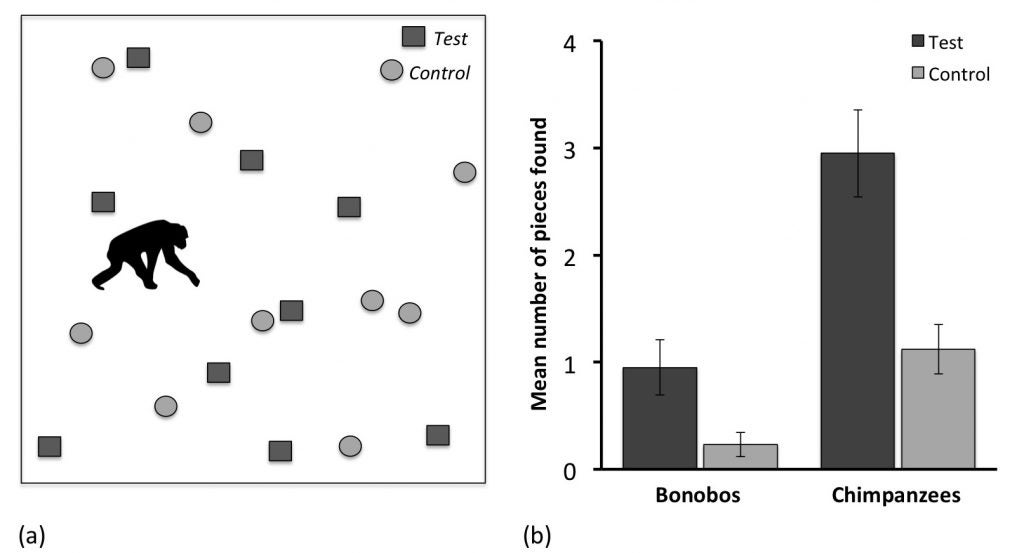Rosati, A.G. (2017). Ecological variation in cognition: Insights from bonobos and chimpanzees. In: Bonobos: Unique in Mind, Brain and Behavior (B. Hare & S. Yamamoto, eds.). Oxford: Oxford University Press, pp. 157-170.
[PDF] AbstractBonobos and chimpanzees are closely related, yet they exhibit important differences in their wild socio-ecology. Whereas bonobos live in environments with less seasonal variation and more access to fallback foods, chimpanzees face more competition over spatially distributed, variable resources. This chapter argues that bonobo and chimpanzee cognition show psychological signatures of their divergent wild ecology. Current evidence shows that despite strong commonalities in many cognitive domains, apes express targeted differences in specific cognitive skills critical for wild foraging behaviours. In particular, bonobos exhibit less accurate spatial memory, reduced levels of patience and greater risk aversion than do chimpanzees. These results have implications for understanding the evolution of human cognition, as studies of apes are a critical tool for modelling the last common ancestor of humans with nonhuman apes. Linking comparative cognition to species’ natural foraging behaviour can begin to address the ultimate reason for why differences in cognition emerge across species.



